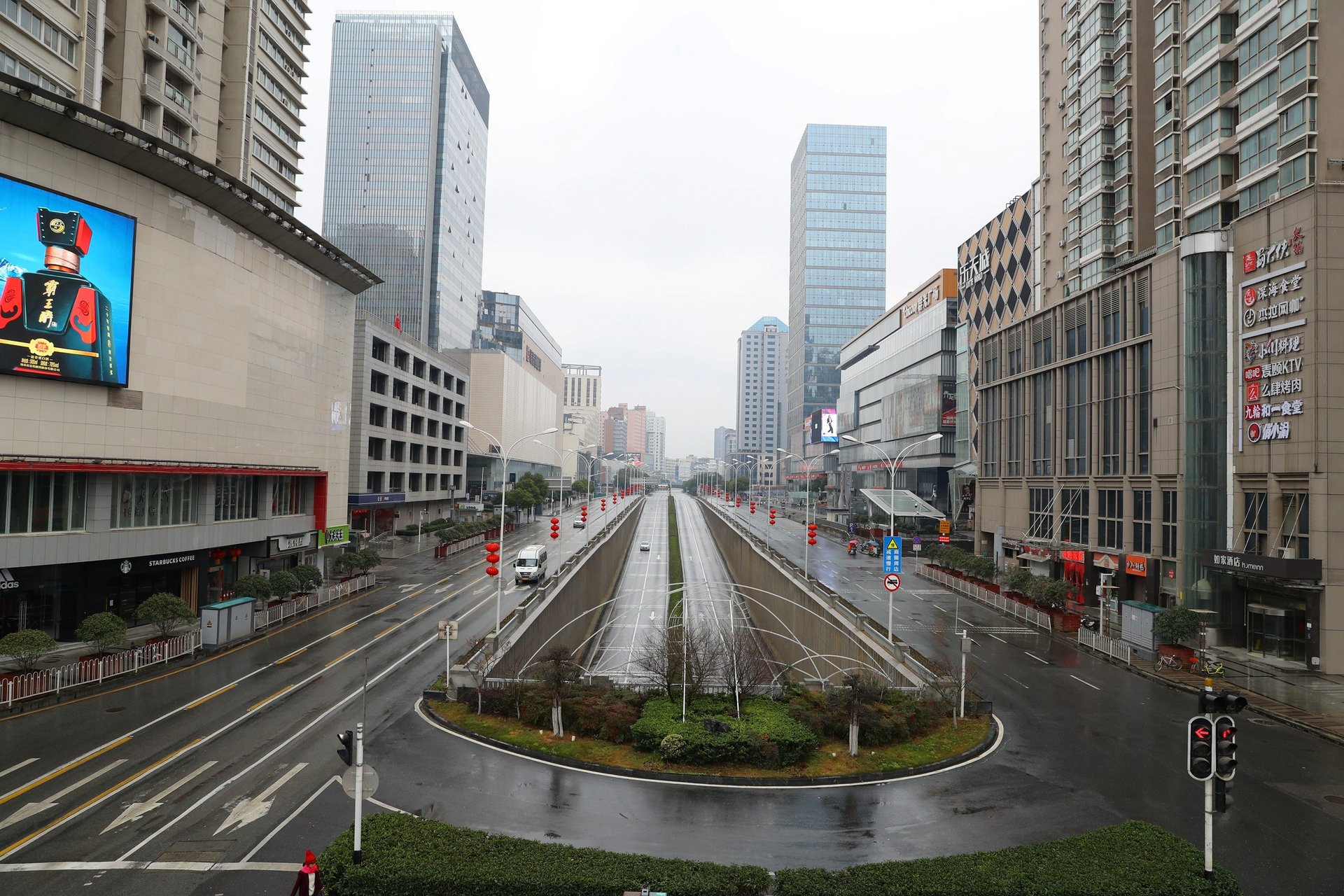African students in China are struggling to find food and supplies in the coronavirus lockdown
It’s Day 7 of the government-imposed lockdown on the city of Wuhan, ground zero of the deadly coronavirus, and there’s no sign of letting up. Since last week the quarantine of people and spaces has been expanded to universities across China, where over 60,000 African students call home.


It’s Day 7 of the government-imposed lockdown on the city of Wuhan, ground zero of the deadly coronavirus, and there’s no sign of letting up. Since last week the quarantine of people and spaces has been expanded to universities across China, where over 60,000 African students call home.
From these quarantines have emerged dark accounts of potential food shortages, overcrowded hospitals, empty streets and dwindling supplies masks and hand sanitizers.
At Beijing’s Peking University, a number of African students opted to stay in the country for the Lunar New Year break expecting travel and much needed rest. But they were unaware that they’d be confined in dormitories lacking provisions necessary to protect themselves from contracting the deadly coronavirus.
“Foodstuff is running out at the supermarket; you have to go very early to get vegetables and most canteens are closed,” emailed a Nigerian student who asked not to be identified. “The most annoying to me is that I cannot seem to find where to buy hand sanitizers so I carry a small bottle of gin (65-75% alcohol vol) in my pocket [to sanitize my hands]. This is the same reality for some of my friends”

Though Chinese citizens report that food supplies and sanitizer products are still available in areas around Beijing, African students are trying their hardest not to leave the campus, for fear they may not be allowed back in.
“In my dormitory, starting from yesterday, once you come in, you would only be allowed to pick up stuff you need and leave the premises immediately,” said the Nigerian student. There’s a genuine fear among the students that Chinese authorities could change the current policy and no longer let the students back on campus if they were to leave.
Meanwhile, back in Wuhan, the situation continues to escalate. In a sign that things are getting worse, cars from Chongqing (the municipality that neighbors Wuhan’s Hubei province) are now subject to highway temperature checks.
Recognizing the increasingly dire situation, Australia, the European Union, Germany, France, Italy, Spain, India, New Zealand, Japan, Turkey, the United Kingdom and the United States are all in various states of preparation to evacuate their citizens from Hubei. But almost 5,000 African students remain without help.
There have been reports by foreign students in Wuhan of empty streets, scarce food supplies and an atmosphere of fear.
The World Health Organization has now declared the outbreak in China a “public health emergency of international concern” (PHEIC). As of Thursday (Jan. 30), the virus had sickened more than 8,000 people and killed at least 170.
Some African governments have made various efforts to contact citizens throughout China, but many think it’s not enough.
In a press release “on the fate of Kenyans in China” from Kenya’s ministry of foreign affairs ( issued four days after Wuhan’s lockdown was announced), Kenyans were advised to “protect themselves and comply with the measures put in place by the local authorities”. To date, no statements have been made as to a possible evacuation of Kenyans from Wuhan.
In response to the ministry’s innaction Wuhan’s Kenyans have taken to Twitter with the hashtag #KenyansinWuhan to appeal to their government.
“I am a Kenyan student in Wuhan at the epicenter of the coronavirus. Yet the Kenyan Embassy in Beijing has done or said nothing,” wrote Brian Njoroge, a student from Eldoret, Kenya, on Twitter.” Kenyan media has reported on the presence of 85 Kenyan students stuck in Wuhan. Nigeria’s foreign ministry has failed to reach out altogether claimed the Nigerian student.
In hopes of containing the virus’ spread, nine international airlines have already suspended flights to China. If the situation in China worsens, African governments may find it even harder to get their students and citizens home safely.
After media reports suggesting it would suspend flights to China, Ethiopian Airlines issued a statement saying it would continue flying to the country. Ethiopian and Addis Ababa Bole international airport is Africa’s main gateway to China and has already quarantined at least four people with suspected cases of coronavirus.
At press time Morocco’s Royal Air Maroc said it is suspending flights to China due to the outbreak.
Sign up to the Quartz Africa Weekly Brief here for news and analysis on African business, tech and innovation in your inbox